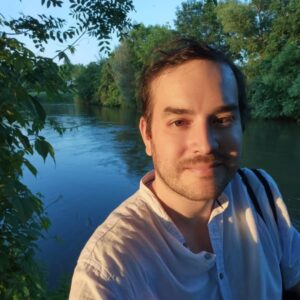
Keith Cantú
Dr. Keith Edward Cantú is a postdoctoral fellow in Asian Religious Traditions at the Center for the Study of World Religions, Harvard Divinity School, where he is active as part of the Transcendence and Transformation Initiative. As a budding historian of religions, his interdisciplinary research especially focuses on South Asian yoga, tantra, and the interface between Sanskrit and Indic vernacular languages, especially Bengali and Tamil, and on the connected histories of yoga in global esoteric currents like Thelema and the Theosophical Society. Prior to Harvard, he was Visiting Assistant Professor at St. Lawrence University in upstate New York.
Keith’s first monograph Like a Tree Universally Spread: Sri Sabhapati Swami and Śivarājayoga was published in 2023 by Oxford University Press. He has also co-edited a volume of Baul songs and translations, published in 2017 as City of Mirrors: Songs of Lālan Sā̃i, and has authored numerous other articles and chapters on yoga- and esotericism-related topics. Current projects include reprinting and translating Tamil and Hindi works of Sri Sabhapati Swami and of his gurus, and a second monograph on the connected histories of yogic and magical practices in the Thelemic librae or instructional books of Aleister Crowley.
Keith has extensively researched and directly engaged Baul Fakiri, Tamil Śaiva, and other tantric and musical currents over the course of his twelve years of fieldwork in and writing on India and Bangladesh. He regularly teaches and shares his research and music at the Esalen Institute and online at Yogic Studies.
Upcoming Programs by Keith Cantú

Tantra: Freedom, Embodiment, and Transformation
Also With Sravana Borkataky-Varma
Have you ever dived into the ocean of Tantra? Have you experienced the weaving of the world? Join scholar-practitioners Sravana Borkataky-Varma and Keith Edward Cantú as we explore Tantric practices and perspectives on topics like freedom from external interference and self-sovereignty (Sanskrit svādhikāra), the link between physical and so-called “subtle bodies,” and the creation of […]
